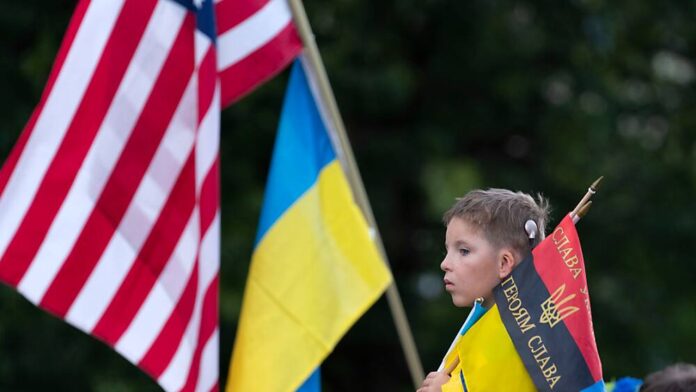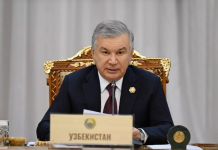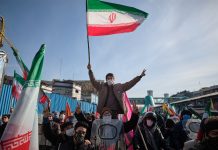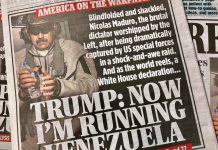By Shazia Anwer Cheema
Will the year 2023 bring us more treacherous news from the heart of Europe and from the Indo-Pacific?
The stage set in 2014 in Europe through Regime Change in Ukraine has already started bringing expected results including a reshaped world food security structure and changing scenes of energy sectors including massive use of coal in European countries.
When rational elements within Europe question the results of the defeated Afghan war, the European governments often offer them documents to read, what global benefits will be received through defeating Russia in Ukraine and what enduring peace would be achieved to control the Indo-Pacific region?
Since the Ukraine-Russia conflict started, whispers can be heard in Europe, although they are partly different from the public statements, clearly reassuring the idea of full backup for Ukraine.
To my understanding, the Ukraine conflict shall never stop until military aid keeps coming inside Ukraine and keep providing excuses for Russia to keep dealing with the issue by enhancing the scale of destruction. If the West really wants to dent Russian might, then it needs the active participation of NATO troops inside Ukraine. As I am more susceptive to whispers, I had my doubts from the beginning that full, overt military support by the EU for Ukraine will not be as easy as Ukraine would have thought before entering into a full fledge war with full confidence.
The USA has maintained its steady supply to fuel the war but other NATO members are not so eager to continue fueling a war on their borders. Two big EU economic powers of NATO—France, and Germany, are still in the process of assessing what would be the outcome of lingering on the war with Russia. In my perception, both are looking for an alternative and more peaceful solution instead of a constant supply of war machinery to Ukraine, which has no properly trained army and comparatively fewer war skills. No matter how advanced military equipment would have been on the battlefield it requires the “Art of War” and combat soldiers. We have already seen in the Afghan war that even over 57 countries under the ISAF banner by utilizing their best combat soldiers failed to get desirous results although they had the best of the best military gear and intelligence tools.
NATO defense ministers met at Ramstein Airbase Germany on January 20 for the working possibilities of sending more arms to Ukraine by putting peer pressure on Germany to send its Leopard S2 tanks to Ukraine. US representative persuaded others by providing the list of its military aid to Ukraine that included 8 Avenger air defense systems, 350 Humvees, 53 Mine Resistant Ambush Protected (MRAP) Vehicles, more than 100,000 rounds of artillery ammunition, rockets, and missiles for High Mobility Artillery Rocket System (HIMARS).
The UK has also announced that it will provide Challenger 2 tanks to Ukraine but has not disclosed the exact number. On January 25, Aljazeera reported that US President Joe Biden will make a formal announcement about the deliveries of Abrams tanks to the Kyiv government. Politico newspaper reported while citing US administrative sources that the United States may send at least 30 M1 Abrams tanks to Ukraine as military aid. The report says the equipment will be purchased from contractors rather than from existing US stockpiles.
Germany under pressure from other NATO allies has decided to ship “Leopard 2” tanks to Ukraine, according to reports in Der Spiegel.
The German news website added, the government is prepared to authorize the transfer of at least one company behind the “Leopard 2A6” model to Ukraine.
The new developments related to Ukraine support has made one point clear, that EU countries are reassessing the idea of fueling the Ukraine war by continuous Arm supply. It is time to consider that if Ukraine keeps the battleground hot with charity weaponry, the ultimate result will be more death and more loss. Ukraine needs soldiers along with weapons and NATO has shown no intention of doing so to date.
On the other hand, in the middle of the Ukraine conflict French President Emmanuel Macron has raised another issue that is not linked with Ukraine and has nothing to do with European land.
France which is the third biggest arms exporter of the world, and the EU’s only nuclear power has increased its military budget by indicating the Indo-Pacific region. An increase of 60% percent to the military intelligence budget and doubling the overall defense expenditure indicate that after the US-led defeat in Afghanistan and the failure of NATO intelligence over the attack on Ukraine, France has left with no other option but to rely and trust on its own military intelligence in future. Emmanuel Macron said while addressing his troops on January 20, at Mont-de-Marsan Air Base in Southwestern France that war is changing and France has and will have armies ready for the perils of the century.
Emmanuel Macron indicated that the next war will most probably be in Indo-pacific, and NATO may need to fight it actively unlike Ukraine’s passive support. He mentioned that France would pay particular attention to its military presence in the Indo-Pacific, where, according to him new threats were emerging. It is important to note that France has doubled its military budget for the year 2015-2025 from 295 billion euros to 413 billion euros.
His speech stirs a debate that instead of sending military aid to Ukraine France is looking toward the Indo-Pacific and has doubled its own military budget by claiming that France has to be ready for a new era, with an accumulation of threats. French President too started mentioning Indo-pacific as an upcoming theatre and said that France would keep a close eye on its overseas territories, especially in Indo-pacific. French experts also believe that France cannot depend upon anybody in reference to Indo-Pacific developments.
According to the official document of the Ministry of Foreign Affairs of France titled “The Indo-Pacific region: a priority for France”, the Indo-Pacific is a very important space for France as it is present in the region via its overseas territories namely New Caledonia, French Polynesia, and Wallis and Futuna and 93% of its exclusive economic zone (EEZ) is located in the Indian and Pacific Oceans. The region is home to 1.5 million French people, as well as 8,000 soldiers stationed in the region.
Instead of going into details about what US allies are already doing in Indo-Pacific, I am of the view that France will not sit idle and will enhance its political presence in Indo-Pacific. The theatre of Indo-Pacific will present a twisted plot with multiple characters.
Note: Writer Shazia Anwer Cheema is an author, columnist, and foreign affairs expert who writes for national and international media. She is a doctoral student and researcher in semiotics and philosophy of communication at Charles University y in Prague. She can be reached at her: Twitter @ShaziaAnwerCh Email: shaziaanwer@yahoo.com






